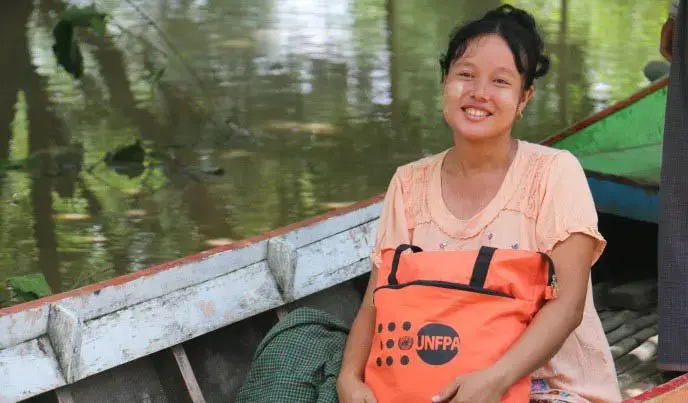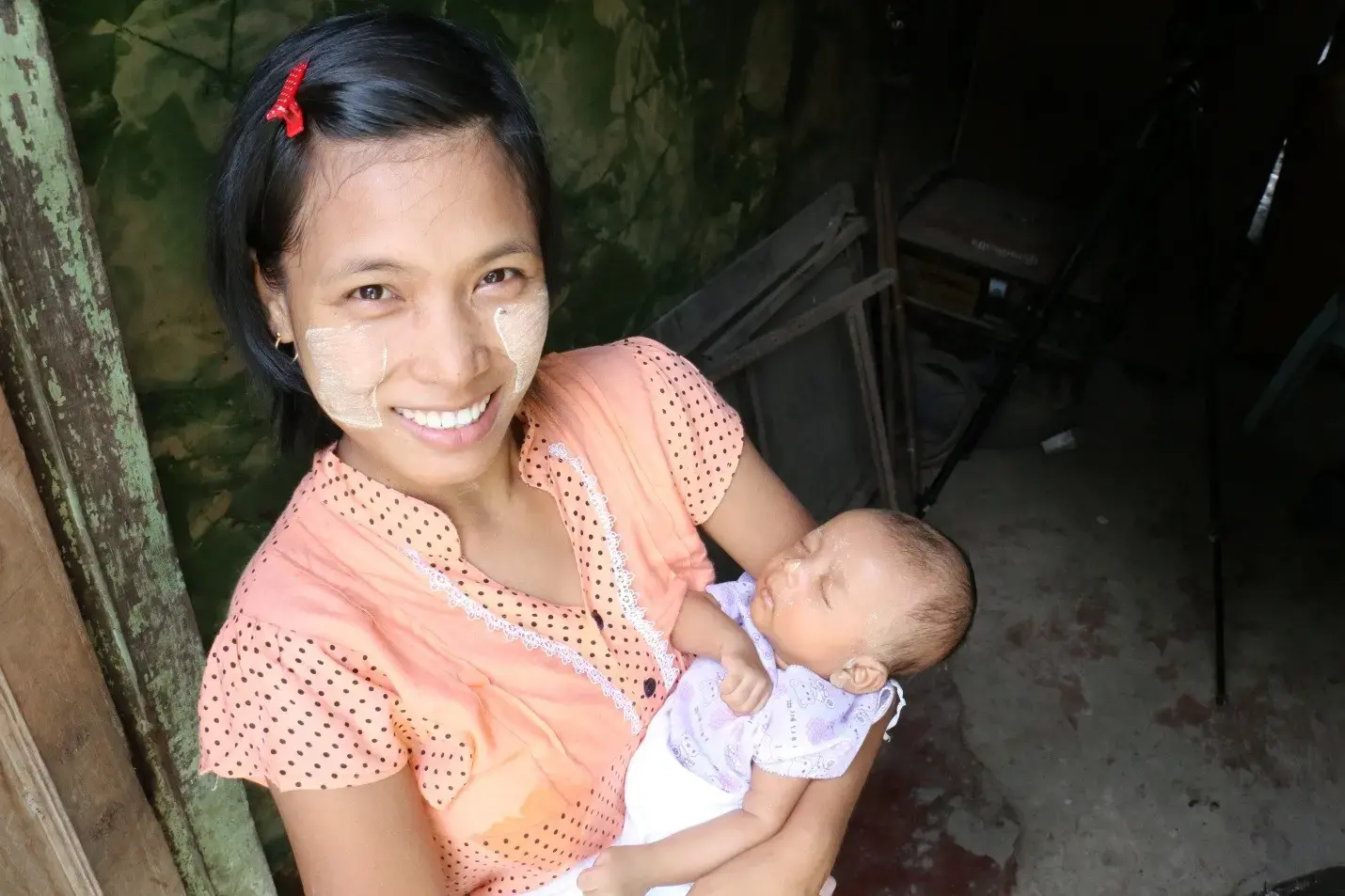Nearly seven decades of internal conflict in Myanmar has affected the lives of hundreds of thousands of civilians in border areas. Myanmar is also prone to natural disaster such as earthquakes, floods, cyclones, droughts, fires and tsunamis. When large numbers of people are affected, the government asks the international community for support to respond to the disasters. Around half a million people were in need of humanitarian assistance in 2015, primarily in Rakhine, Kachin and northern Shan.
Women do not stop getting pregnant or having babies when disaster strikes. During conflicts and natural disasters, women and their babies at particular risk because of the sudden loss of medical support. The lack of medical services is compounded by trauma and exposure to violence. Urgent maternal health interventions can mean the difference between life and death for pregnant women and their newborns, and for other children and relatives under their care.
UNFPA Activities
In Myanmar, UNFPA supports the government and local communities to help ensure that the lives, dignity and well-being of people, especially women and girls, affected by conflict and disaster are protected.
UNFPA provides life-saving and essential reproductive health services during humanitarian crises, covering both preparedness and response. Interventions aim to improve access to and quality of medical services. The Minimum Initial Service Package is designed to prevent excess maternal and neonatal mortality and morbidity, reduce HIV transmission, manage the consequences of sexual violence, and plan for the provision of sexual and reproductive health services in the early days and weeks of an emergency. UNFPA builds capacity to implement a Minimal Initial Service Package by supporting training and coordination, as well as warehouse facilities and stockpiling of emergency reproductive health kits. UNPFA also distributes and organizes the appropriate use of sexual and reproductive health supplies, including post rape kits, in emergency areas.
UNFPA works through international and national organisations that have nation-wide networks of doctors and midwives who are familiar with the Myanmar context. This helps ensure regular reproductive health care for internally displaced persons and communities in Kachin and Rakhine. UNFPA reaches different religious and ethnic communities in both state and non-state controlled areas. UNFPA chairs the Sexual and Reproductive Health Technical Working Group, which provides coordination and technical assistance to organizations working in humanitarian reproductive health programming in Myanmar.





